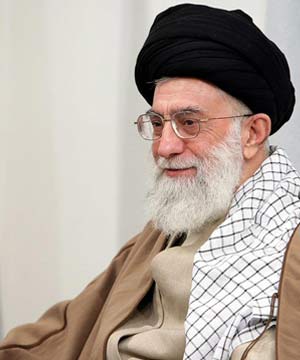The United States and Iran have agreed for the first time to one-on-one negotiations over Iran’s nuclear program, Obama administration officials tell The New York Times, set to take place immediately following the US presidential elections.
 Top Iranian officials have insisted the talks take place after the US election, “telling their American counterparts that they want to know which American president they would be negotiating with,” the Times reports.
Top Iranian officials have insisted the talks take place after the US election, “telling their American counterparts that they want to know which American president they would be negotiating with,” the Times reports.
Hours after the story appeared at the Times’ website, the White House denied it. “It’s not true that the United States and Iran have agreed to one-on-one talks or any meeting after the American elections,” National Security Council spokesman Tommy Vietor said in a statement.
If true, this agreement, presumably placed after the election in the hopes that there will be more leeway for a settlement in a second term for President Obama, was reached after “intense, secret exchanges between American and Iranian officials.”
Given GOP presidential candidate Mitt Romney’s assertions about how he would deal with Iran – with even tougher sanctions and less reliance on diplomacy – it’s not clear that the talks will still happen in the event that Romney wins.
Even if the talks do occur in the event of a victory for Obama, it’s not clear they’ll be fruitful. Talks have floundered at various levels throughout Obama’s first term.
The closest the parties came to settlement was a deal in which Iran would halt 20 percent uranium enrichment in exchange for swapping enriched uranium for foreign-made fuel rods. Iran initially rejected the deal, but reluctantly agreed after Brazil and Turkey joined in the discussions. By that point, the Obama administration rejected Iranian acquiescence, in favor of sanctions.
Most of the so-called diplomacy with Iran has been “predicated on intimidation, illegal threats of military action, unilateral ‘crippling’ sanctions, sabotage, and extrajudicial killings of Iran’s brightest minds,” writes Reza Nasri at PBS Frontline’s Tehran Bureau. These postures have spoiled much chance to resolve the issues.
After the failed talks in 2009 and 2010, wherein Obama ended up rejecting the very deal he demanded the Iranians accept, as Harvard professor Stephen Walt has written, the Iranian leadership “has good grounds for viewing Obama as inherently untrustworthy.” Former CIA analyst Paul Pillar has concurred, arguing that Iran has “ample reason” to believe, “ultimately the main Western interest is in regime change.”


